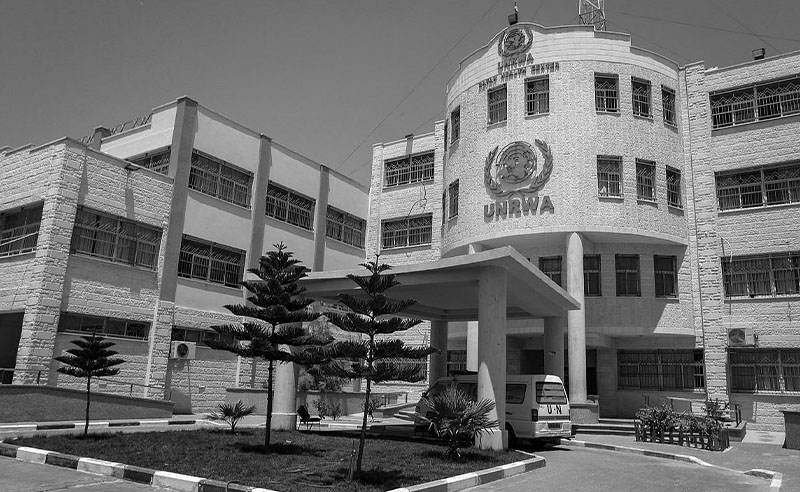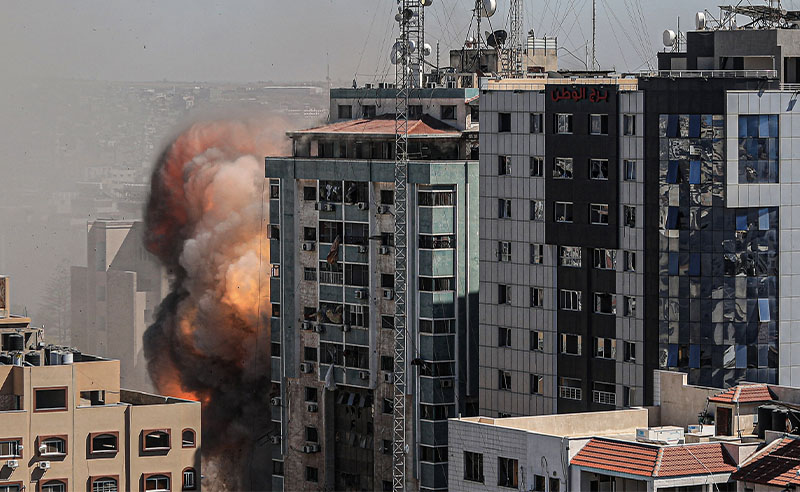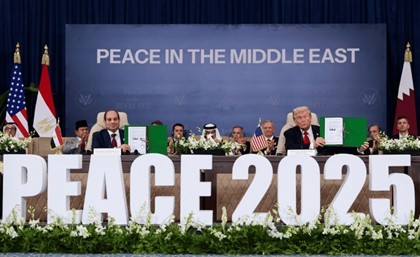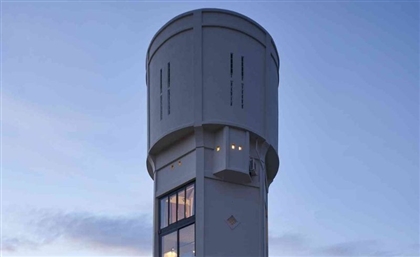The State of Palestinian Startups Post October 7th
Once a beacon of hope, Palestine’s startups are now facing a new wave of challenges.

Palestinian entrepreneur Dalia Shurrab was traveling to San Francisco to give a talk at UNRWA about supporting refugees when Palestinian group Hamas launched an attack on Israel on October 7 in resistance to more than seven decades of occupation. Unable to return home to Gaza as planned, she traveled to Jordan to be with her husband.
Like many entrepreneurs in the besieged Gaza Strip, Shurrab’s newly launched startup venture, Ya Rayeh, was literally blown apart during Israel’s incessant bombing of the enclave. “The office where the developer team used to work from is gone, it got destroyed,” Shurrab tells Startup Scene. “Everything that we were planning for, including organizing cultural exchange programs and looking for people to work in tourism, all this has stopped.”
Known for its growing tech hub, Gaza is home to talented tech entrepreneurs and freelancers working for both regional and international companies. Microsoft, Cisco, HP, and Nokia amongst others have all successfully worked with Palestinian IT talent in the last few years.
Ironically, however, some of the same companies that hire Palestinian tech talent have come under scrutiny for infringing on Palestinian civil liberties. In 2020, Microsoft Corp announced that it was going to divest its stakes in AnyVision, an Israeli facial recognition startup, following media reports that the company uses its technology to surveil Palestinians living in the occupied West Bank.
But with Israel’s continuous bombardment of Gaza, dropping more than 25,000 tons of explosives since October 7— equivalent to two nuclear bombs in an area that doesn’t exceed 360 square kilometers, according to the Euro-Med Human Rights Monitor— all of that is gone. Schools, places of worship, hospitals, residential buildings, and offices, such as Gaza Sky Geeks (GSG), the largest tech hub in Palestine run by Mercy Corps, an NGO aid organization, have been destroyed, according to a video posted on LinkedIn, showing the Mercy Corps sign.
“Gaza Sky Geeks is not the only building that is gone,” says Shurrab. “All coworking spaces and offices that were open to freelancers working in web development, mobile application, design, motion graphics, have been destroyed. Even the communication tower was destroyed.”
Suffering from air, sea and land blockade, Palestinians in Gaza are often prevented from entering or leaving the territory except in rare circumstances, such as “urgent” or “life-threatening medical conditions.” Human rights have described the strip as “the world’s largest open-air prison.”
The closure policy, which also includes restrictions on the movement of goods, has devastated Gaza’s economy, resulting in one of the highest unemployment rates in the world at about 45% in 2022, according to data from the Palestinian Bureau of Statistics (PCBS). “The only gateway for the people of Gaza was working online,” says Shurrab. “But even that is no longer possible, as the internet, electricity, water and fuel have been cut.”
IMPACT FELT OUTSIDE GAZA
While UN experts continue to call on the international community to prevent genocide in Gaza, Palestinians in the occupied West Bank face escalating settler violence, significantly impacting their daily lives and restricting their ability to work.
“I haven’t seen my parents in more than four weeks,” says Safaa Ayyad, Founder of Dawerha, a Ramallah-based e-commerce platform selling second hand items. “They live in another place, and I don’t plan on seeing them any time soon. I don’t want to risk it at this time. On normal days, without a war, we can get exposed to altercations or violence by the occupation forces.”
Struggling to continue running her startup without on the ground activities and events, Ayyad is also at risk of losing funding she was recently approved for. “I recently got accepted to receive investments from two funds, but one informed me that they will no longer be funding Palestinian entrepreneurs this year, and the other I’m not sure if I’ll be receiving funds under these circumstances,” adds Ayyad. “It would have really helped financially with the campaigns I wanted to launch soon. So, until next year, there is definitely no source of funding available for us.”
Funding has always been challenging for Palestinian startups. There is only one venture capital firm in Palestine, Ibtikar Fund, and many international investors are reluctant to invest in Palestinian startups. According to Wamda, the three markets that received the most investments in MENA in 2022 were UAE, raising $1.58 billion, followed by Saudi Arabia, recording $907 million, and Egypt, attracting $736 million. Meanwhile, Palestinian startups raised $2 million during the same period.
“Palestinian entrepreneurs always face significant challenges and constraints when it comes to funding,” says Leen Abubaker, Programs Manager at Flow Accelerator, and Co-Founder of Sawaed19, in Ramallah. “We don’t only have one VC, but also investors are reluctant to invest in a startup operating under an occupation. They don’t know what the next day will bring, and if the startup will actually be able to work and grow under such conditions. This puts a higher level of challenges on Palestinian entrepreneurs.”
To help fill the funding gap for Palestinian entrepreneurs, Hamzeh Ghosheh, Founder of Naviatex, a Palestinian auto insurance startup, and other angel investors launched Peleset Angels earlier this year. Providing pre-seed funding, Peleset Angels enables founders to develop their MVPs, get traction, and do market validation and testing. Working with Palestinians living abroad, Peleset Angels has so far received 20 applications from startups, and is now going through the due diligence process of three startups- one in Gaza, and two in the West Bank.
“It’s important to be part of the solution, and that’s part of what pushed us to create this angel investor network,” says Ghosheh. “If we pool our resources, we'd be able to get to the end result that we're trying to get to. And this kind of also feeds into the resilience that is known of the Palestinian people.” ROCKY ROAD AHEAD
ROCKY ROAD AHEAD
Israel’s ongoing raids in Gaza and the occupied West Bank risks severely hindering the growth and success of Palestinian startups. From limited investment opportunities to networking and connecting with coworkers, entrepreneurs are now forced to overcome immense challenges to keep their businesses afloat.
For Sondos Mleitat, Founder and CEO of Hakini, a mental health wellness platform operating in Palestine and across the MENA region, communicating with her team in Gaza has become increasingly difficult. “Connection is very bad, and it’s not available all the time,” she says. “The situation is really very difficult. I pray for their safety.”
She is relying on freelancers for the time being until the situation calms down, and the team is able to resume work safely. But for more integral team members, like the marketing lead and SEO specialist, she says that she had to put such activities on hold. “Some things you can handle, but others are not so easy,” she says.
Despite these challenges, Mleitat believes that the Palestinian startup ecosystem represents an important economic opportunity for youth long term. For that opportunity to be realized, however, imposed limitations and restrictions on Palestinian startups need to be lifted. And one of these restrictions is access to financial institutions.
“We have been suffering for many years, and we need many things,” she says. “We need better access to financial solutions, such as to easily open international bank accounts, access to investments and other financial instruments. Right now, Palestinian entrepreneurs cannot easily do that and it is an integral part of the life of each startup to be scalable and successful.”
To counter this, entrepreneurs often look to register their startups outside Palestine, such as in the U.S, while also expanding to neighboring countries in the region, particularly to Egypt, Jordan, and Saudi Arabia. “They have to register somewhere else, in a more stable market, or at least to target other stable markets to grow and be able to attract investments,” says Abubaker.
Mohamed Alnobani, Co-Founder and CEO of The Middle Frame, a Ramallah-based stock image platform powered by AI that aims to break the stereotypes about the Arab world through images, registered his startup in the U.S and later expanded to Egypt after receiving funding. “Luckily for The Middle Frame, we were able to enter Egypt soon after launching last year,” he says. “We were fortunate enough to receive that initial funding which enabled us to establish ourselves in Egypt right from the start. As entrepreneurs, we always need to look outside Palestine, not only because of the political situation, but because it is a small market, and we need to enter a bigger market.”
For now though, startups in Palestine and throughout the Middle East are stepping up, offering to take on the workload of freelancers and tech professionals in Gaza, enabling them to keep their jobs and continue receiving income. “I’m now trying to help freelancers working in translation, to take on their tasks and send it to their clients,” says Shurrab. “For people working in tech, I try to connect with some of my friends so they can at least keep their jobs.”
Mleitat's startup, Hakini, is also joining forces with BuildPalestine, a social enterprise in Ramallah, and Jawwal-Paltel Group, telecommunications company in Palestine, to establish free hotlines and provide psychological first aid for people in Gaza. “They are undergoing emotional collapse and we need to do what we can to alleviate the heaviness and pain they’re going through,” adds Mleitat.
- Previous Article Italian-Palestinian Duo No Input Debuts Eponymous Electro EP
- Next Article Eby’s: A Ghost Bakehouse Delivering Paris All Across Cairo



























